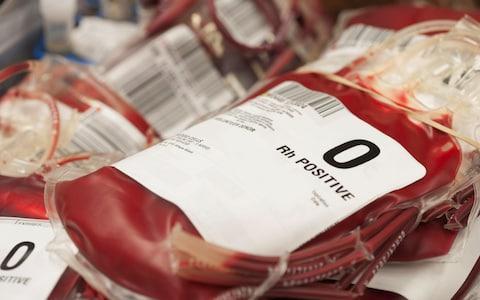Changing Blood Group May Become a Reality Now

Image for representational use only.Image Courtesy : The Telegraph
Blood transfusions become quite a hassle when the blood banks run out of the particular blood group that a patient needs. A person cannot take just any blood, for a successful transfusion, the donor and the patient, both groups must be compatible. However, people having blood group ‘O’ are the universal donors, which means that blood from these people can be transfused to a person of any other blood group. If by any means a blood group could be converted to the universal donor form, then would it not contribute towards solving the crisis of blood when it is sorely needed? This process, which once seemed an impossible task might become possible, thanks to the relentless efforts of the scientists over the past few decades.
In the latest research published in Nature Microbiology on June 10, scientists from University of British Columbia have reported that their research on gut microbes in humans showed that the gut microbes produce two enzymes that can convert the common type A into a more universally accepted one. If the process turns out well, it can revolutionise blood donation and transfusion.
“This is a first, and if these data can be replicated, it is certainly a major advance,” --says Harvey Klein, a blood transfusion expert at the National Institutes of Health’s Clinical Centre in Bethesda, Maryland. Mr. Klein was not involved in the reported study.
How are Blood Groups Determined?
Blood groups are determined in terms of presence of sugar molecules on the surfaces of the red blood cells. A person having blood group A has a particular sugar coating on the red blood cell surface, called the antigen A and so on. The O group blood has neither antigen A, nor antigen B on the surfaces of the red blood cells. The lack of the antigens in A type blood ensures that it can be transfused to a person of any other blood type and this makes O blood the universal one, especially important in emergency rooms, where the doctors and nurses might not have any time to determine the blood group of the patient who needs an urgent transfusion.
Blood as a Scarce Commodity
As per WHO data, about 42% of the world’s blood donations are collected in high-income countries, which have only 16% of the world’s population. This clears out a picture of blood shortage in emergency. For instance, India has an annual blood shortage of 30 lakhs unit, according to a 2017 report. Moreover, India still lacks good healthcare infrastructure, especially in remote villages. So, when someone is in emergency and needs blood urgently, and has no viable donors among family members or friends, a good chance is that they won’t get any blood. That’s why the latest research is important.
The Research
The scientists tried to transform the second most common blood that is type A (or blood group A) by removing it’s defining antigens. As a result, this blood type was converted into the universal O type blood. But they met with limited success, as the enzymes known to remove the A antigen were not efficient enough to do their task economically.
They had been trying for the improvement of these enzymes for at least 4 years. This time, they decided to focus on human gut bacteria. These gut bacteria that they studied eat the sugar-protein combos called mucins. The mucins line the gut where these microbes reside. Mucins’ sugars are similar to the type-defining ones in red blood cells.
The team isolated the DNA of the microbes from human stool samples and also could identify the genes that make the enzymes capable of digesting the mucins. Hereafter, they studied the enzyme’s ability to remove the A antigen.
At first, they didn’t observe something substantial. But testing two of the resulting enzymes at once, they found their ability to remove antigen A from human blood. The enzymes originally come from the gut bacterium called Flavonifractor plautii,. Adding tiny amounts of the enzymes to a unit of type A blood removed the offending antigen A.
Nevertheless, further research to confirm the finding still awaits. However, these improved findings are considered as remarkable by blood specialists across the world.
Get the latest reports & analysis with people's perspective on Protests, movements & deep analytical videos, discussions of the current affairs in your Telegram app. Subscribe to NewsClick's Telegram channel & get Real-Time updates on stories, as they get published on our website.















